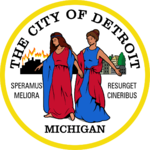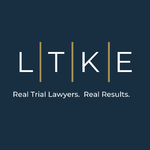- TPS Group
- Areas Served
- Detroit, MI
- The Pension Service
- 457(b) Plans


457(b) Plans in Detroit, MI
A non-qualified, deferred compensation plan established by state and local governments and tax-exempt employers under IRC Section 501. They can be either eligible plans under IRC 457(b) or ineligible plans under IRC 457(f). The Pension Service handles only eligible 457(b) plans.
The Pension Service handles only eligible 457(b) plans.
Nonqualified Deferred Compensation For Employers in Detroit, MI What is it?
- Nonqualified Employer Retirement Savings Plan that does not meet the tax and labor law (ERISA) requirements for qualified pension plans.
- Used to provide retirement benefits to a select group of executives or key personnel or to provide supplemental benefits beyond those provided by company’s qualified plan
- 457(b) plans are for tax exempt organizations or governmental agencys
- 457(b) plans can include employee deferrals, employer match and employer non-elective contributions. Combined these contributions are subject to the annual contribution limit of $19,500 for 2021.
Advantages?
- Involves minimal IRS, ERISA and other regulatory requirements such as reporting & disclosure, fiduciary funding requirements, etc.
- More plan design flexibility than qualified plans.
- Allows coverage for a group of employees or even a single employee without any non-discrimination requirements.
- Allows Employer to provide different benefit amounts for different employees on different terms & conditions.
- Restores contributions/benefits limited by IRS restrictions in qualified retirement plans.
- Employee can defer max amount($19,500 for 2021) to 457(b) and max to 401(k)/403(b)
- This is an attractive feature for those key employees really looking to maximize their retirement savings.
Disadvantages?
- Tax exempt 457(b) plan must restrict eligibility to a select group of executives or key personnel.
- For 457(b) plans the annual deferral limit ($19,500 for 2020) includes employee deferrals, employer match and employer non-elective contributions. This could become an issue if the employer is making a significant employer contribution to the plan.
Investment of Assets
- Participants can elect how to invest the assets of the plan.(i.e. mutual funds, etc.)
Distribution Rules
457(b) Plans in Detroit, MI
- Withdrawals permitted after severance of employment and for unforseen emergencies
- Must start receiving benefits by April 1 following later of retirement or age 72
- Plan loans permitted
The Next Step
- What is the Employer’s objective with the Retirement plan?
- Whom do you want to benefit in the plan?
- What level of benefit do you wish to provide?
Related to: Third Party Administrator in Detroit, MI, TPA in Detroit, MI, Pension Plan Design Consultant in Detroit, MI, 401k Plan Assistance in Detroit, MI, Retirement Plan Design in Detroit, MI, Actuarial Consulting in Detroit, MI, 401k Plan Consultant in Detroit, MI, Third Party Benefits Administrator (TPA) in Detroit, MI, 401k TPA in Detroit, MI
Further Reading: 457(b) Plans
- Choosing A Retirement Plan For Your Small Business
- 4 Red Flags Your Third Party Administrator Is Wrong For You
- Action Doc: Aligning Plan Design with Your Goals
- SECURE Act: Making it Actionable
- CARES Act Summary-TPS Group
- How the CARES Act Applies to Your Retirement Plan
- Action Doc: Did You Know You Are a Fiduciary
- Action Doc: Financial Wellness Is Essential to Saving for Retirement
- What is an ERISA Fiduciary?
- Nonqualified Deferred Compensation Plans 457(b) & 457(f)
- Action Doc: Understanding Plan Audits
- IRC 457(b) Deferred Compensation Plans
- Non-Governmental 457(b) Deferred Compensation Plans
- Action Doc: It’s Time to Restate Your Defined Benefit Plan Document








